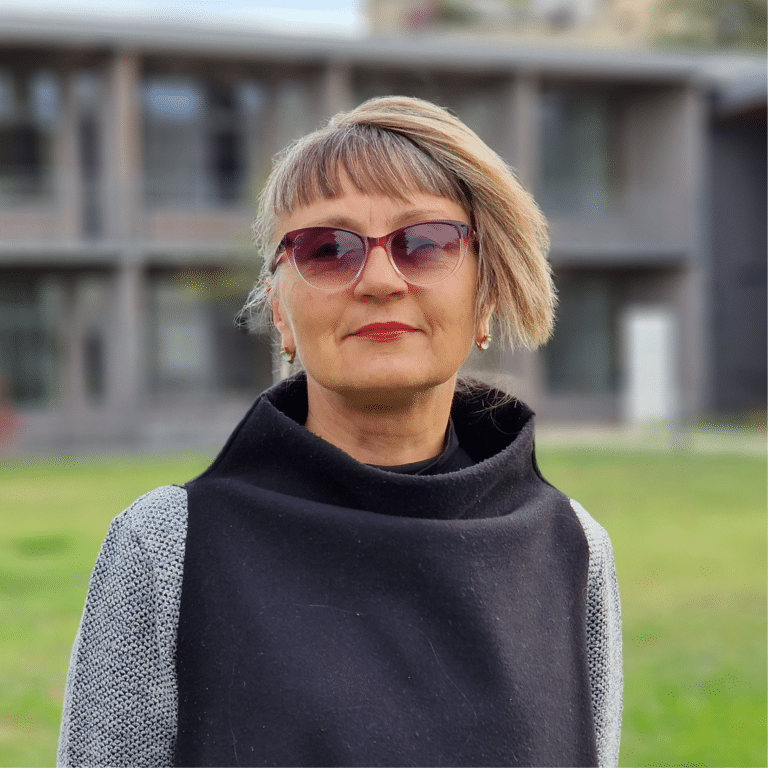Research project
The audiovisual archives of MNATP, post-war cinema, and television.
Summary of the research project
Laure Astourian’s project at Iméra revolves around the ethnographic tradition in French cinema during the 1960s. Her first book, titled The Ethnographic Optic: Jean Rouch, Chris Marker, Alain Resnais, and the Turn Inward in 1960s French Cinema (forthcoming June 2024, Indiana University Press), highlights a strong ethnographic dimension present in French cinema during that period. Laure Astourian explores how the ethnographic impulse and metaphor influenced a major cinematic movement in France and how these films responded to the end of the French colonial empire and its impact on French urban identity. This study primarily focuses on three renowned filmmakers, namely Jean Rouch, Chris Marker, and Alain Resnais, whose 1950s works were characterized by a sophisticated engagement with otherness and whose early 1960s films cast a self-conscious ethnographic gaze on urban France.
From Colonial Ethnography to French Ethnography
Laure Astourian investigates how these filmmakers integrated references to French colonial ethnography in their films. Her work establishes a crucial connection between French ethnography and French cinema in the post-war period, analyzing how these filmmakers responded to decolonization and addressed identity issues of that time. By linking post-war cinema and television to the tradition of imperial ethnography, the author demonstrates that French cinema anticipated the convergence between French provincial and imperial ethnography, thus providing new insights into these films within their historical context.
Ethnography of Provincial and Rural France
Beyond this initial analysis, Laure Astourian delves into another aspect of French ethnography by focusing on the tradition of the Musée national des arts et traditions populaires (MNATP), representing the ethnography of provincial and rural France. This tradition, emerging in the 19th century, focused on culturally distinct and more isolated provinces, emphasizing the collection and preservation of objects and the memory of vanishing ways of life. Initiated by Georges Henri Rivière, the creator of MNATP, this comparative and global approach aimed to valorize these collections among audiences distanced from rural life. The author highlights how French provincial ethnography evolved over the years, moving from inquiries into folklore and material culture to monographs on village communities, then urban neighborhoods, before developing into ethnography of the modern world.
New Perspectives on Audiovisual Ethnography
Laure Astourian’s research project at Iméra links post-war cinema and television to the ethnographic tradition of MNATP. She explores films and TV series from this period with a French and provincial focus, thus establishing a connection between French ethnography and these audiovisual productions. Among the works she plans to explore are films by Georges Rouquier, Agnès Varda, Jacques Demy, and Jean Eustache, as well as TV series “À la découverte des Français” and “Croquis.” By connecting creative films to visual anthropology represented by the rushes of collect-enquiries, the researcher aims to highlight MNATP’s collections by exploring their “narrative potential” (Côté, Calafat) and contribute to enriching the discourse surrounding these collections.
Laure Astourian’s project at Iméra offers an innovative and interdisciplinary approach by linking cinema, visual anthropology, and ethnography. In-depth research in the archives of Mucem and INA will shed light on the links between ethnographic archives and audiovisual productions, thereby enriching the programming of the Jean Rouch festival and providing opportunities for fruitful collaborations with researchers from Aix-Marseille University and IDEMEC.
Her residency will provide an opportunity to write an in-depth article on the intersections between MNATP’s audiovisual archives and post-war creative films and TV series, contributing to a better understanding of cinematographic ethnography in the French context of that period.
Biography
Laure Astourian is a specialist in French cinema of the 1950s and 1960s. She particularly focuses on the works of Jean Rouch, Chris Marker, Alain Resnais, Agnès Varda, and Jean-Luc Godard. She earned her Ph.D. from the Department of French at Columbia University (New York) in 2016 under the guidance of her thesis advisor, Vincent Debaene. In 2016-2017, she was awarded the Phi Beta Kappa Mary Isabel Sibley Fellowship in French Studies. Since 2017, she has been an Assistant Professor (maîtresse de conférences) at Bentley University (Massachusetts). With the support of a Fulbright research fellowship, she spent the autumn of 2021 working on her first book, The Ethnographic Optic: Jean Rouch, Chris Marker, Alain Resnais, and the Turn Inward in 1960s French Cinema (forthcoming June 2024, Indiana University Press), at the École normale supérieure (Ulm), under the guidance of Antoine de Baecque.




